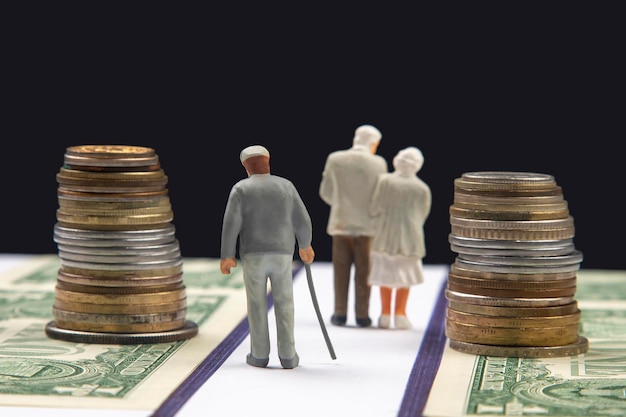
American citizens often grapple with a hefty debt burden, a problem that appears to grow with the aging baby boomer generation. If you’re nearing retirement or already there, yet wrestling with a significant amount of debt, it’s imperative to take proactive measures to clear your debts expediently. Although one can lead a comfortable retired life despite outstanding debts, many financial gurus caution against carrying debts post-retirement for its potential risks. To discover methods to overcome your debts and secure a relaxed retirement, continue reading.
Downsizing your living space
At retirement, if your children have moved out of your home, consider moving into a smaller, more cost-effective residence, be it a house or an apartment. Not only will this free you from high mortgage payments and housekeeping costs, but it also comes with several other overlooked practical advantages. If you envisage a retirement with plenty of travel, you won’t spend much time at home. As a result, you’ll essentially be paying for unneeded space. Similarly, maintaining a smaller space could likely reduce maintenance issues and slash repair expenses, thus saving much over the long term.
Mortgage refinancing
Should you have ample equity in your home to allow refinancing, it could provide a cash withdrawal to invest and potentially create a return. If these investments prove profitable, you can use this income as your primary source, instead of a meager fixed amount. However, beware of temporary interest rate deals that can steeply increase later. Also, securing a preferable mortgage might be challenging as fixed incomes often fail to meet underwriting prerequisites. But with the right lender and tax expert, you can chart out the optimal path towards making this viable to your financial circumstances.
Debt reduction through compromise
A compromise offer might just be the key to your debt predicament. If the government deems that repayment of your total debt is unlikely, they may be open to accepting a reduced payment. While not common, a successful application could make your debt significantly more manageable and bring retirement closer. Do remember that this program has various qualifiers relating to collectability, liability, and administrative matters. These can be complex to navigate, so engaging a professional from a portal like www.communitytax.com could better your chances.
Part-time work during retirement
Retired elders typically have limited income streams, largely supplemented by social security. Such restricted fixed incomes can be hard to survive on, especially when burdened by debts. If this resonates with you, consider part-time work during retirement to pay off your outstanding debts. This can aid in keeping your retirement savings intact while chipping away at your debts.
Considering bankruptcy
While contemplating bankruptcy can be unnerving, it might turn out to be a practical solution for those encumbered with debt during retirement. Chapter 7 bankruptcy liquidation doesn’t impact your social security benefits, home equity, or 401(k) accounts. Furthermore, IRAs are protected up to $1 million, which signifies that bankruptcy might be a suitable route. However, since certain state exemptions apply, it’s vital to consult with a financial advisor before considering such a radical step.
If retirement is not yet a reality
If you’re yet to retire and the above options don’t align with your current debt scenario, think about postponing your retirement. The longer you continue working, the longer you can delay claiming social security and other benefits, thereby potentially improving your financial status in a year or two.
Lastly, retiring debt-free is achievable by selecting strategies that align with your personal financial condition. A consultation with a financial professional could help you choose the best path.


